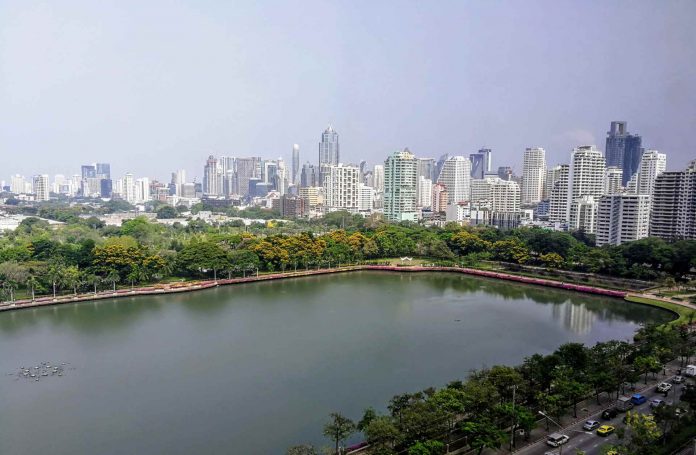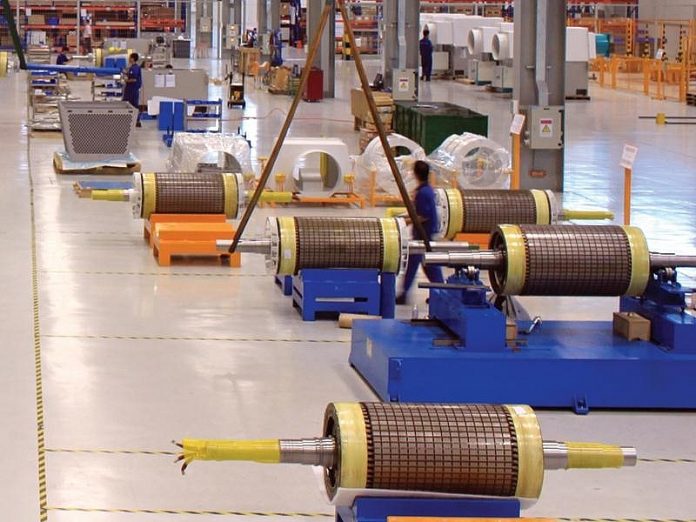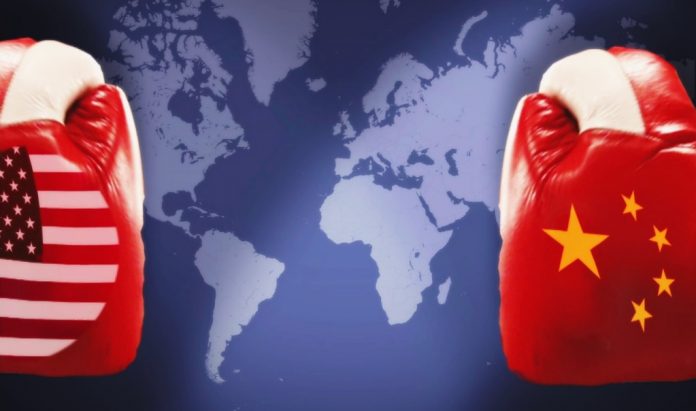 India and other countries around the Bay of Bengal should invest greater resources in the multilateral institution BIMSTEC to promote regional connectivity and shared prosperity.
India and other countries around the Bay of Bengal should invest greater resources in the multilateral institution BIMSTEC to promote regional connectivity and shared prosperity.
Bridging the Bay of Bengal: Toward a Stronger BIMSTEC
Thailand’s New residential leasing law effective on May 1 – Law, Real Estate
Residential property leasing will now be deemed to be a contract-controlled business following publication in the Government Gazette last week.
The notification defines a “residential property leasing business” as a business that leases (or subleases) five units of property or more to individual lessees, for residential purposes, in exchange for a fee collected by the business operator, regardless of whether or not the units are in the same building.
Property is defined to include any accommodation, house, condominium unit, apartment, or other kind of residential property leased for residential purposes, excluding dormitories and hotels which are regulated separately.
Property consulting firm Jones Lang LaSalle (Thailand) Ltd (JLL) said that the new residential leasing law , effective on May 1, will make it more challenging for landlords to handle tenants who violate any of the agreed-upon terms and conditions of a binding contract.
The notification imposes the following requirements
1. Residential lease agreements must include a version in Thai, and must contain the following details:
a) The name and address of the business operator and its authorised person;
b) The name and address of the lessee;
c) The name and location of the property;
d) Details of the property’s physical condition, including any items and equipment in the property;
e) Term of the lease, specifying its commencement date and expiration date;
f) Rental fees, and due dates for payment;
g) Public utility fee rates, and due dates for payment;
h) Service fee rates, which must be reasonable and at the actual cost paid for the services, and due dates for payment;
i) Other fees and expenses (if any), which must be reasonable and at the actual cost paid, and due dates for payment; and,
j) The…
Finance Minister defends proposed property tax
His argument is in stark contrast with what the local media said would squeeze tax from almost all home owners in the country.
The Ministry of Finance earlier introduced a draft property tax law in which homes valued at higher than VND700 million would be taxed 0.3% or 0.4%. Luxury cars, yachts, and planes worth over VND1.5 billion (US$65,860) would also be subject to the proposed tax.
Minister Dung told local media on April 20 that the property tax would not leave any impact on low-income people and that the draft law had been prepared in line with a National Assembly resolution and a Government directive.
The draft law, if approved, would help strengthen State management of assets and the effectiveness of using such assets, especially land and housing, restrict the wastefulness of public assets, prevent corruption and speculation, and raise State budget revenue, he said.
The ministry has consulted experts and taxpayers about the planned tax. If the Government gives the nod to the draft law, it would go before the National Assembly, the minister said.
Asked why the ministry had not found ways to cut State budget spending, instead of levying new taxes, Minister Dung said the State budget would be restructured based on State budget collection policy in the process of the country integrating into the global economy.
Lower import duties and fuel prices have resulted in State budget collection falls, forcing the ministry to propose this tax to ensure State budget balances in the future, he reasoned. Meanwhile, he added, the ministry would also take measures to slash public spending.
However, National Assembly General Secretary Nguyen Hanh Phuc told Tuoi Tre newspaper on April 17 that the legislature had yet to look into a draft law on property tax.
Prime Minister Nguyen Xuan Phuc said on April 20 at a meeting with his advisory team that the property tax should be levied on rich people and those owning a second home.
SGT
Reimagining the Bay
 The resolution of many outstanding maritime territorial disputes and the tentative steps for political and security cooperation in the region provide the basis for imagining a Bay of Bengal community that will benefit all the peoples of the region.
The resolution of many outstanding maritime territorial disputes and the tentative steps for political and security cooperation in the region provide the basis for imagining a Bay of Bengal community that will benefit all the peoples of the region.
Vietnam’s FDI attraction: which sectors to prioritise?
Vietnam has very good achievements in foreign direct investment attraction, however, it needs to change its strategy and orientation to focus on the necessary sectors to improve efficiency.

For sustainable future development, it is important to set the country’s priorities right (Illustration photo: GE’s factory in Haiphong)
Sectors of current focus
Numerous foreign groups have been doing business successfully in Vietnam, such as Samsung, LG, Intel, GE, Mitsubishi, and Panasonic. However, the draft of FDI attraction orientation and strategy for 2018-2030 built by the Ministry of Planning and Investment in collaboration with the World Bank noted that Vietnam needs to carefully review the priority sectors to attract FDI in the time to come.
According to Simon Bell, the World Bank’s senior advisor on investment policy, experts mentioned high-added value in FDI attraction but have not pointed out sectors and what to do, and that in the new orientation, Vietnam needs to identify these two points.
This is the largest challenge not only for Vietnam, but also of other countries which are attracting FDI successfully in the first 10 or so years.
These sectors must become engines of development for the country. Thereby, the World Bank’s experts have researched and outlined a series of priority sectors, such as chemicals, high-tech electronic components, creative and high-tech agriculture, and high-quality tourism, in order to raise value and improve competitiveness.
Original equipment manufacturing, automobiles and transport parts, and environmental technology are short-term priorities, while healthcare and education, pharmaceuticals and health products, and financial and IT services are mid-term ones. They are all high added-value sectors.
Professor Nguyen Mai, chairman of the Vietnam Association of Foreign Invested Enterprises (VAFIE) stressed that it is important to lure FDI into high-tech and environmentally friendly projects that comply with Industry 4.0.
“Additionally, they need to be promoted by attractive incentives which lure large groups and corporations to invest into renewable power projects,” added Professor Mai.
Sectors Vietnam must say “no” to
In addition to priority sectors, Professor Mai said that Vietnam must say “no” to FDI projects in cement and iron-steel manufacturing as well as oil refineries in order to implement its green growth goals. He suggested choosing modern and high-tech investors to develop coal and gas thermal power projects.
The leader of Samsung Vietnam told VIR that Vietnam should continue luring FDI capital into labour-intensive fields such as textile, footwear, and the processing and manufacturing sectors. He said that countries attracting FDI usually aim to transfer technology, take advantage of big capital exceeding domestic firms’ capacity, and create jobs for local human resources.
“These three factors are necessary for socioeconomic development. Processing and manufacturing projects are also very important to create jobs with simple requirements and skills. How will workers live without such projects?,” he noted.
The World Bank’s experts said that Vietnam should not stop pouring FDI capital into sectors which have been invested successfully.
Agriculture and the basic production fields are still very necessary. In addition to pouring capital into big cities, FDI also needs to reach the fields of textile and footwear or create jobs in remote areas, according to Simon.
VIR
Connecting the Bay of Bengal: The Problem
 Beyond its economic potential and strategic significance, the Bay of Bengal distinguishes itself globally by abysmal levels of integration, reflecting a deep divide between South and Southeast Asia.
Beyond its economic potential and strategic significance, the Bay of Bengal distinguishes itself globally by abysmal levels of integration, reflecting a deep divide between South and Southeast Asia.
Hatyai Marathon marks 12th anniversary edition on 27 May 2018

The annual Hatyai Marathon is marking its 12th anniversary edition on 27 May 2018 in Hat Yai, which is the largest city of Songkhla province in Southern Thailand.
Hatyai Marathon 2018 features runs in five categories:e a 42.195-km marathon, limited to 700 runners; a 21.1-km half-marathon, limited to 1,000 runners; a 10.5-km mini marathon, limited to 1,800 runners; a 4-km fun run limited to 3,500 runners (1,000 more than last year), and a 4-km students fun run, limited to 1,000 runners (500 less than last year).
The marathon starts at Jiranakorn Stadium at 03.30 Hrs. with the half-marathon beginning at 05.30 Hrs. The mini marathon starts at 06.00 Hrs. and the 4.0 km. Fun run starts at 06.10 Hrs.
Rewards for runners range from a souvenir t-shirt, trophy, medal, goodiebag, finisher t-shirt, buff headwear, and certificate, depending on the category and finishing time.
Registration for the event is open now (at www.hatyaimarathon.com) and there is space for up to 8,000 runners, but at the time of writing, registration for the marathon is already closed.
Hat Yai is the gateway to Malaysia and Singapore and is the center of trade, logistics, communication, transportation, and tourism of Songkhla province and the ASEAN region. The city is famous for seafood and lively nightlife, as well as shopping places including Kim Yong and Santisuk markets and Hat Yai City Square. The city’s Hatyai International Airport serves several flights per day, both domestic and regional connections.
What does it mean for real estate? – China, Real Estate, United States
On March 22, U.S. President Donald Trump signed an executive memorandum imposing tariffs as high as 25% on US$60 billion-worth of Chinese exports to the U.S.
In response, on April 2, China announced retaliatory tariffs worth around US$3 billion on a range of U.S. products.
While the move has sparked concerns of a trade war between the world’s two largest economies, its actual impact on the Chinese economy is likely to be minimal, given the small size of the tariffs – and the goods they pertain to – compared to China’s overall economy.
What does it mean for real estate?
U.S. and Chinese officials are now reported to be engaged in closed-door talks aimed at preventing a trade war. Any agreement is likely to accelerate the opening up of the Chinese economy in areas including financial services, electric vehicles, healthcare and elderly care, while providing incentives for foreign businesses investing in China.
CBRE Research believes that the successful conclusion of a trade deal will drive new demand for a wide range of property types including offices, business parks and senior housing.
In the meantime, however, robust domestic demand will continue to underpin solid leasing and capital market activity.
A worse-case, and highly unlikely, scenario would involve the dispute remaining unsolved or escalating into an all-out trade war, which would negatively impact Chinese exports and create volatility in the foreign exchange market.
This would result in weaker property leasing demand, particularly in the office and industrial sectors, while prompting many foreign investors to review their China strategy. In these circumstances, the central government would be forced to finetune its fiscal and monetary policy to guard against the risk of a hard…









